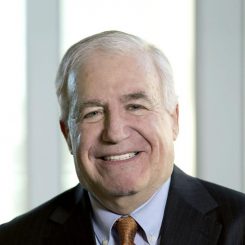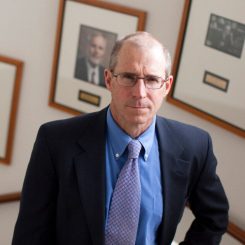February 2, 2022 - 11:00 AM - 12:30 PM Eastern Time (ET)
Investing in Infrastructure for the Energy Transition
Event Description:
Achieving committed decarbonization objectives will require substantial investments in infrastructure, for instance to connect remote wind and solar resources to demand centers, increase reliability in power systems with high shares of intermittent generation, or provide the required charging infrastructure for electric vehicles. Infrastructure projects are costly and face a variety of barriers, however, prompting policymakers to dramatically scale up public spending in an effort to accelerate infrastructure deployment and harness short- and long-term economic benefits. Drawing on recent research, Paul L. Joskow, Elizabeth and James Killian Professor of Economics at MIT, and James H. Stock, Vice Provost for Climate and Sustainability at Harvard University, will discuss the role of infrastructure investment in the context of the energy transition.





